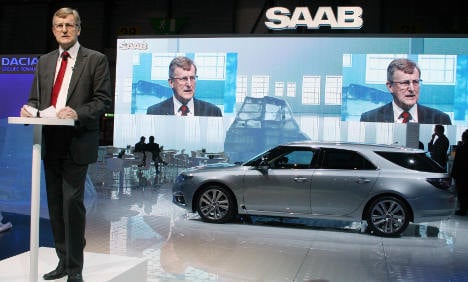Despite media reports suggesting the Swedish Security Service (Säpo) had found links with organized crime, Vladimir Antonov was close to becoming a shareholder in Saab until the US FBI put a stop to his involvement.
Viktor Muller was then obliged to present a plan for the buying out of the Russian businessmen from Spyker to enable the purchase of Saab from General Motors to be approved by the Swedish and US governments.
In an interview with the Svenska Dagbladet (SvD) newspaper, Muller has said Vladimir Antonov intends to prove that the accusations against him are false and that he expects the Russian to return to the company as a shareholder.
“Of course he is welcome back. He has been a fantastic support for the company,” Viktor Muller told SvD.
Antonov however has an agreement with General Motors whereby he can not return to Spyker without the prior consent of the US car firm. This has widely been reported to have been a concession to a demand forwarded by the FBI.
The Local reported at the end of last week that two of the key remaining pieces of the puzzle required to complete the takeover of the troubled Swedish car maker had fallen into place.
On Friday the European Investment Bank gave the all clear for the completion of a €400 million ($546 million) loan to Saab Automobile and agreed that the loan would be guaranteed by the Swedish state.
Earlier on Friday Spyker shareholders voted to approve the purchase of Saab Automobile from General Motors.
Spyker and GM reached a deal in January for the sale of Saab for $74 million
in cash and about $326 million worth of redeemable preferred shares to be retained by the American giant.
Saab’s future had been in doubt throughout 2009 as GM, itself going through bankruptcy, radically restructured its business and tried to sell off what it saw as non-core and unprofitable assets.
Spyker, a minnow in the global auto industry, manufactured 21 cars in the first quarter of 2009 and sold 23. It has a workforce of about 90 assembly workers while Saab has 3,400 employees in Sweden alone.



 Please whitelist us to continue reading.
Please whitelist us to continue reading.
Member comments